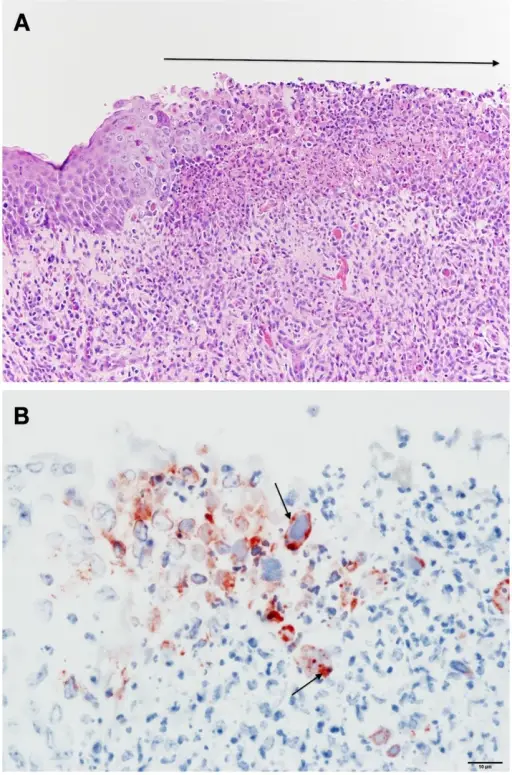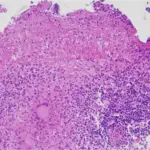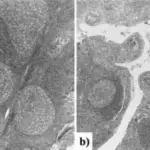Pharyngitis is an inflammation irritation of the pharynx.
What is the Pathology of Pharyngitis?
The pathology of pharyngitis is:
-Etiology: The cause of pharyngitis is usually infectious, with the viral origin and bacterial group A streptococci.
-Genes involved: None.
-Pathogenesis: The sequence of events that lead to pharyngitis are as follows, bacteria or viruses may directly or indirectly attack the pharyngeal mucosa, triggering a local inflammatory response.
-Histology: The histology associated with pharyngitis shows the presence of inflammatory cells, eosinophils, mast cells, neutrophils. Inflammation of the Nasopharynx which is frequent co-occurrence to common viral upper respiratory infections.
How does Pharyngitis Present?
Patients with pharyngitis typically affect males and females, present at age range of 5 to 24 years with school-aged children 5- 18 years of age typically account for the highest portion. The symptoms, features, and clinical findings associated with pharyngitis include Headache, cough, vomiting, rheumatic fever, tonsillar exudate, anterior cervical lymphadenopathy, conjunctivitis, rhinorrhea, petechiae, petechiae among others.
How is Pharyngitis Diagnosed?
Pharyngitis is diagnosed with a medical history and physical examination. Laboratory studies include GABHS rapid antigen detection test, Throat culture, Peripheral smear, gonococcal culture. Imaging includes soft tissue neck CT scan.
How is Pharyngitis Treated?
Pharyngitis is treated through medical care; corticosteroids are recommended for airway obstruction, antibacterial to prevent complications such as rheumatic fever.
What is the Prognosis of Pharyngitis?
The prognosis of pharyngitis is good as mortality due to pharyngitis is very rare.



